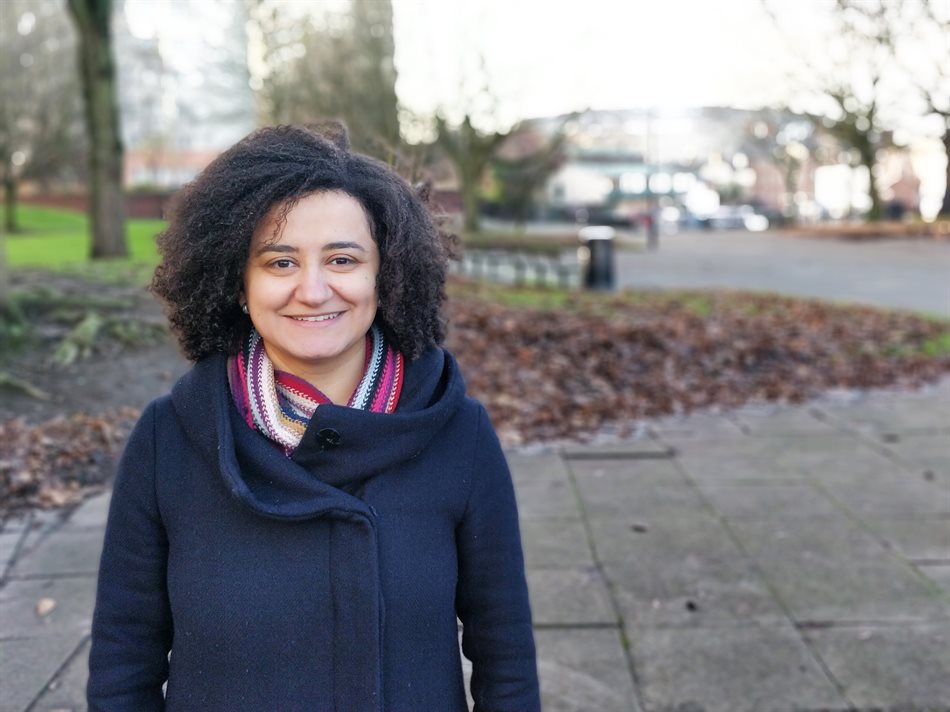An 80,000 thesis would take nine hours to present. Your time limit? Three minutes...
On Thursday 6 June, we will be hosting the second annual 'Three minute thesis' (3MT®) competition here at Royal Holloway as part of the Annual Doctoral Conference in the Boilerhouse (afternoon session). The 3MT® is a competition, first developed by the University of Queensland, that challenges PhD students to present their research within three minutes to a general audience in an engaging way. 3MT celebrates the discoveries made by research students and encourages you to communicate the importance of your research to the broader community. The winner and runner up will be awarded a cash prize (£500 for the winner and £250 for the runner up).
How does it work?
The presentations must be spoken word and use only one, static PowerPoint slide to convey an entire thesis topic to a non-specialised audience, without going over the three minute mark. The presentations are then assessed by a panel of judges who look for both enthusiasm and clarity by the candidate and their research topic.
How to register...
If you'd like to take part in the 'Three minute thesis' competition, you can register by emailing this address by Thursday 23 May. The team are also happy to respond to your questions.
Hear from our previous winner...
School of Management, Digital Organisation and Society Research Centre research student Evronia Azer took part in 2017's 'Three minute thesis' competition and was awarded first prize. She gives an insight into how she benefited from the experience and shares her advice for anyone considering taking part in this year's competition.

Name: Evronia Azer
Department: School of Management, Digital Organisation and Society Research Centre
Year: Fourth year
Thesis title: The use of technology to organise collective action in critical contexts
Co-supervisor: Dr Yingqin Zheng & Dr G 'Hari' Harindranath
1. Why did you decide to take part in the competition?
I love talking about my research to different people, especially if they are not experts in the topic. When I discuss my research, I have the chance to see how people evaluate its impact. I also love competitions and I have won other awards throughout my PhD.
2. How did you find the experience? What skills did you develop through the experience?
The experience was so much fun, and the atmosphere was so friendly. I had the chance to network with colleagues from other departments and hear about their interesting research in a way that made sense to non experts like me. I learned from the panel's feedback, not only to me, but to all participants as well.
The preparation for the competition and the feedback helped me unwrap complex and specialist research into simple, yet not trivial, ideas that anyone can understand. It also helped me be concise about my research and be able to summarise it clearly and succinctly.
3. Have you been able to apply the skills you demonstrated in the competition in any other context since then?
Yes – these skills are an important part of my academic training and have contributed to my ability to write good abstracts and summaries of my work. It is also helpful to show on my CV that I've taken part in such competitions as it shows my ability of delivering talks to a variety of audiences.
4. Would you encourage other PhD students to take part?
ABSOLUTELY! Even if you are very busy and have many other commitments, the competition doesn't take much time and it's really worth it, especially if you win! Also, it is very useful if you have stage fright and can help you improve your presentation skills.
5. What are your top tips for competitors this year?
- Practice your short talk, and I'd suggest that you read it to someone who doesn't know anything about your research, and get their honest feedback
- It is helpful to write points that help you remember what you want to say, but don't read out a lot of text, as it is effective to have eye contact with the audience
- Most importantly, don't panic! It's your research after all, and you know it better than anyone.